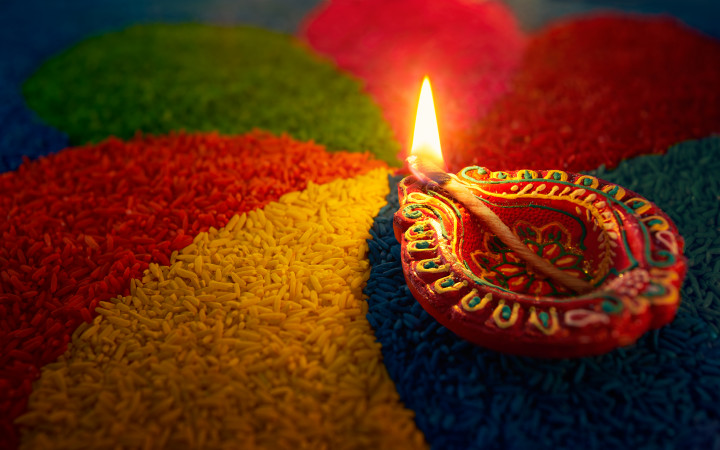Today’s Wonder of the Day was inspired by Seema from Mississauga. Seema Wonders, “What is Diwali?” Thanks for WONDERing with us, Seema!
India is the largest democracy in the world. It’s home to tigers, rhinos, and 18 percent of all the people on Earth. And, of course, let’s not forget Bollywood. Today, we’re learning about another part of Indian culture—the festival of Diwali!
What is Diwali? It’s also called Divali, or sometimes Deepavali. The name comes from the Sanskrit word dipavali. In English, this means “row of lights.” The holiday is the largest yearly celebration in India.
Have you ever been to a Diwali celebration? If so, you know why it’s sometimes referred to as a Festival of Lights. It’s customary for families and communities to light candles and clay lamps. They place these in their homes and outdoors to light up the night. Some families also celebrate with fireworks.
When is Diwali? The five-day holiday is centered around the New Moon and occurs in the Hindu month of Kartik. On the Gregorian calendar, this falls in October or November. While the third day of Diwali is the height of the celebration, many families observe all five days.
The first day of Diwali is called Dhanteras. On this day, it’s traditional to clean the family home. Many people also purchase items made from gold on this day. Those of the Hindu faith may also choose to honor Lakshmi, the goddess of wealth and fortune.
Choti Diwali is the second day of the festival. This is a time for families to decorate their homes. Many prepare clay lamps and set them out. They may also create a rangoli, which is a colorful arrangement of sand or powder.
The third day of Diwali is Lakshmi Puja. It is the main day of the festival, when clay lamps, candles, and fireworks are common sights throughout India. People who observe Hinduism also ask for blessings from the goddess Lakshmi on this day. Most celebrations include a feast as well.
On day four, or Goverdhan Puja, people visit with friends and relatives. It’s common to trade gifts. In the Hindu tradition, this is also the first day of the new year.
Finally, Bhai Dooj is the fifth day of Diwali. It is a celebration of the special bond that exists between siblings. Traditionally, adult brothers visit their sisters’ homes on this day, often bringing gifts. The sisters, in turn, may prepare a feast and pray for their brothers’ protection and well-being.
Most people who celebrate Diwali are part of the Hindu religion. But the festival also has an important place in Sikhism and Jainism. Some Buddhists even observe Diwali. It’s also common for non-religious people living in India to celebrate.
People of Indian descent also hold festivals for Diwali in many other countries around the world. Have you ever been to a Diwali celebration? Which part of the festival did you enjoy most?
Standards: CCRA.R.4, CCRA.L.3, CCRA.L.6, CCRA.R.10, CCRA.R.2, CCRA.SL.4, CCRA.L.1, CCRA.W.3, CCRA.L.2, NCAS.A.1, NCAS.A.2, NCAS.A.3




